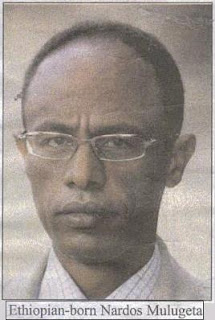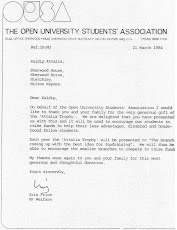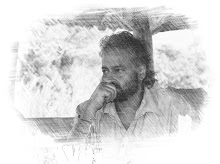Location of MombasaCoordinates: 4°03′S 39°40′E / -4.05, 39.667
Country Kenya
Province Coast Province
District Mombasa District
Government - Mayor Councillor Ahmed Mohdhar (Serving currently 2008 )
Area
- City 295 km² (113.9 sq mi)
- Land 230 km² (88.8 sq mi)
- Water 65 km² (25.1 sq mi)
Elevation 50 m (164 ft)
Population (1999)- City 707,400
- Urban 707,400
Time zone EAT (UTC+3)
Mombasa is the second largest city in Kenya, lying on the Indian Ocean. It has a major port and an international airport. The city is the centre of the coastal tourism industry.
The original Arabic name is Manbasa; in Swahili it is called Kisiwa Cha Mvita (or Mvita for short), which means "Island of War", due to the many changes in its ownership.
The town is also the headquarters of Mombasa District which, like most other districts in Kenya, is named after its chief town.
DescriptionThe city has a population of 707,400 and is located on Mombasa Island, which is separated from the mainland by two creeks; Tudor Creek and Kilindini Harbour. The island is connected to the mainland to the north by the Nyali Bridge, to the south by the Likoni Ferry and to the west by the Makupa Causeway, alongside which runs the Uganda Railway. The port serves both Kenya and countries of the interior, linking them to the Ocean. The town is served by Moi International Airport.
The town is mainly occupied by the Muslim Mijikenda / Swahili people. Over the centuries there have been many immigrants and traders who settled in Mombasa, particularly from the Indian Sub-Continent, Persia, the Middle East and Somalia, who came mainly as traders and skilled craftsmen. Even after four or five generations, their descendants continue to contribute highly to the economy of present day Mombasa and Kenya as a whole.
Traditional dress for the Swahili women is a brightly coloured, printed cotton sheet called a kanga, which may have inspirational slogans printed on it. Muslim women wear a covering known as a Bui Bui, that is traditionally black, along with a head covering called a Hijaab, and sometimes wear a veil called a Nikab. Today, teased as the "Ninja".
Men wear a type of sarong, which is coloured in bright bands, called a "Kikoi".
HistoryThe founding of Mombasa is associated with two rulers: Mwana Mkisi (female) and Shehe Mvita. According to oral history and medieval commentaries (also based on oral history), Shehe Mvita superseded the dynasty of Mwana Mkisi and established his own town on Mombasa Island.
Shehe Mvita is remembered as a Muslim of great learning and so is connected more directly with the present ideals of Swahili culture that people identify with Mombasa.
The ancient history associated with Shehe Mvita and the founding of an urban settlement on Mombasa Island is still linked to present-day peoples living in Mombasa.
The Thenashara Taifa (or Twelve Nations) Swahili lineages recount this ancient history today and are the keepers of local Swahili traditions. Even though today Mombasa is a very heterogeneous cultural mix, families associated with the Twelve Nations are still considered the original inhabitants of the city.
Most of the early information on Mombasa comes from Portuguese chroniclers writing in the sixteenth century.
1331 ~ The famous Moroccan scholar and traveller Ibn Battuta did visit Mombasa on his travels on the eastern coast of Africa and made some mention of the city, although he only stayed one night. He noted that the people of Mombasa were Shãfi'i Muslims, "Religious people, trustworthy and righteous. Their mosques are made of wood, expertly built."
The exact founding date of the city is unknown, but it has a long history. It must have been already a prosperous trading town in the 12th century, as the Arab geographer Al Idrisi mentions it in 1151.
During the pre-modern period Mombasa was an important centre for the trade in Spices, Gold & Ivory.
Its trade links reached as far as India, China and oral historians today can still recall this period of local history. Throughout early modern period Mombasa was a key node in the complex and far reaching Indian Ocean trading networks, its key exports then were ivory, millet, sesamum and coconuts.
In the late pre-colonial period (late nineteenth century) it was the metropolis of a plantation society, which became dependent on slave labour (sources contradict whether the city was ever an important place for exporting slaves) but ivory caravans remained a major source of economic prosperity.
1415 ~ The great Chinese fleet of Zheng, is supposed to have visited Mombasa (around 1415).
1498 ~ Vasco da Gama was the first known European to visit Mombasa, receiving a chilly reception. Two years later, the town was sacked by the Portuguese.
1502 ~ The Sultanate became independent from Kilwa Kisiwani as Mvita (in Swahili) or Manbasa (Arabic).
1528 ~ Portugal attacked the city again.
1593 ~ The Portugese built Fort Jesus, in an attempt to colonise, from which time it was governed by a Captain-major.
1638 ~ It formally became a Portuguese colony (subordinated to Goa, as a stronghold on the route to Portuguese India).
1698 ~ The town came under suzerainty of the Sultanate of Oman, but it became subordinate to Zanzibar, prompting regular local rebellions. Oman appointed three consecutive Governors (Wali in Arabic, Liwali in Swahili):
1698 ~ 12 December - Imam Sa`if ibn Sultan
1698 ~ 1728: December - Nasr ibn Abdallah al-Mazru`i
1728 ~ 12 March - Shaykh Rumba
1728 ~ Mombasa returned to Portuguese rule by captains-major Álvaro Caetano de Melo Castro (12 Mar 78–21 Sep 1729), then four new Omani Liwali till 1746, when the last of them made it independent again (disputed by Oman), as the first of its recorded Sultans:
1746–1755 `Ali ibn Uthman al-Mazru`i
1755–1773 Masud ibn Naisr al-Mazru`i
1773–1782 Abdallah ibn Muhammad al-Mazru`i
1782–1811 Ahmad ibn Muhammad al-Mazru`i (b. 17..–d. 1814)
1812–1823 `Abd Allah ibn Ahmad al-Mazru`i (d. 1823)
1823–1826 Sulayman ibn `Ali al-Mazru`i
From 9 February 1824 to 25 July 1826 there was a British protectorate over Mombasa, represented by Governors. Omani rule was restored in 1826; seven liwalis where appointed.
1837 ~ 24 June, it was nominally annexed by sultan of Zanzibar and Muscat Sayyid Saeed Bin Sultan with the assistance of Shaikh Isa Bin Tarif with his tribe Original Utub Al Bin Ali [1].
Isa Bin Tarif , Chief of the Al Bin Ali Al Utbi Tribe, is a descendant of the Original Utub who conquered Bahrain [2].
Fort Jesus in Mombasa was named after Shaikh Isa Bin Tarif .
The name Jesus in Arabic means Isa, therefore it means the Fort of Isa ( Isa Bin Tarif ).
The Al Bin Ali (the tribe of Isa Bin Tarif ) were a politically important group that moved backwards and forwards between Qatar and Bahrain, they were the original dominant group of Zubara area [3].
1887 ~ 25 May, its administration was relinquished to the British East Africa Association.
1898 ~ The sultan formally presented the town to the British.
1896 ~ It soon became the capital of the British East Africa Protectorate and is the sea terminal of the Uganda Railway. Many workers were brought in from British India to build the railway, and the city's fortunes revived.
1895 ~ 1 July it became part of Britain's Kenya protectorate (the coastal strip nominally under Zanzibari sovereignty).
1963 ~ Kenya gets it’s Independence from the British. Mzee Jomo Kenyatta earns his Presidency.
1963 ~ Mombasa was part of the state of Zanzibar until 12 December 1963 when it was ceded to be incorporated into the newly independent state of Kenya.
Geography and Climate
Being a coastal town, Mombasa is characterised by a flat topography. The town of Mombasa is centered on Mombasa island, but extends to the mainland. The island is separated from mainland by two creeks, Port Reitz in South and Tudor Creek in North.
Mombasa has a warm, tropical climate. Winter months are slightly warmer than summer. The amount of rainfall depends essentially on season. The rainiest months are April and May, while in January to February the rainfall is minimal.[4]
It has one of the World’s finest Beaches and natural wildlife to boast about.Economy
Mombasa's North Beach.Mombasa is a major trade centre and home to Kenya's only large seaport, the Kilindini Harbour. "Kilindini" is an old Swahili term that means "deep". The port is so called because the channel is naturally very deep. Kilindini Harbor is an example of a natural geographic phenomenon called a Ria, formed millions of years ago when the sea level rose and engulfed a river that was flowing from the mainland. Thus giving Mombasa a
“Natural Habour.”Mombasa is the centre of coastal tourism in Kenya. Mombasa island itself is not a main attraction, although many people visit Old Town and Fort Jesus. North of Mombasa island are Nyali, Kenyatta, Bamburi and Shanzu beaches. South of the town there are Shelly, Tiwi and Diani beaches. Several luxury hotels exist on these beaches, while most of cheaper beach hotels are located farther away from the town.
Other local industries include an oil refinery and the Bamburi Cement factory.
Transport The airport of the city is the Moi International Airport. Mombasa has a railway station and Kenya Railways runs overnight passenger trains from Mombasa to Nairobi, though the service is less extensive than it used to be. Highways connect Mombasa to capital Nairobi, former Tanzanian capital Dar es Salaam while northward road link to Malindi and Lamu. Within Mombasa, most local people use Matatus (minibuses) to move between villages and Mombasa Island. Mombasa port is the largest in Kenya but there is little or no scheduled passenger service. International cruise ships frequent the port.
There is no bridge between Mombasa Island and South Coast, instead the distance is served by ferries from Kilindini and Mtongwe to Likoni in South Coast. Operating ferries are aged.
1994 ~ a ferry serving Mtongwe route sank, leaving 270+ people perished.
Culture
Influenced heavily by the Arabs, Swahili's & Indian.
MusicTaarab music, which originates from Zanzibar, has a prominent local presence. Recently, Hip Hop, Reggae & Bhangra has become popular, especially amongst the youth.
Sports
Kenyan Premier League has currently one football team from Mombasa, Bandari F.C. who play at the Mombasa Municipal Stadium. Another team, Coast Stars, relegated from the league. The only Mombasa-based team to win the league is Feisal FC, the 1965 champions.
There are several cricket teams in Mombasa. One of them is Mombasa Sports Club (MSC), whose ground was given ODI status in 2006.
MSC has also a rugby union team playing in the Kenya Cup league, the premier rugby competition in Kenya. Mvita XI men and MSC ladies represent Mombasa in Kenyan field hockey leagues.
The 2007 World Cross Country Championships were held in Mombasa.
Mombasa Marathon is competed annually in Mombasa.
The town also hosts the Biennial classic edition of Safari Rally and annually a Kenya National Rally Championship round.
Townships/Areas
Mombasa Island
Kizingo: Considered the prime residential area of Mombasa.
The State House & Mombasa Golf Club are in Kizingo.
The Aga Khan Academy is an independent school in Kizingo.
Kibokoni: Part of Old Town with Swahili architecture. Fort Jesus is in Kibokoni.
Makadara: Part of Old Town consisting of a high number of descendants of Baluchi soldiers who settled within this area before it developed into a town. The name is derived from the Arabic word Qadr-ur-Rahman meaning fate of God.
Ganjoni: Primarily residential. Middle class.
Tudor: Another middle class residential area with homes and shops.
Outside Mombasa IslandNyali: Also considered a prime and up-market residential area, it is on the mainland north of the island & is linked by the New Nyali Bridge. It has numerous beach front hotels in the area known as the "North Coast". Nyali has two distinct sections - the posh Old Nyali and the upcoming New Nyali. For many residents, Nyali has now become a self-contained residential area, with a multiplex cinema, shopping malls, banks, schools and post offices. This often eliminates the need for residents to cross the bridge and to go into the congested Mombasa city center. Nyali is home for the Nyali Cinemax complex, the Nyali Golf Club, and some of the most prestigious academic institutions of the Coast Province, examples of which include Oshwal Academy and the Mombasa Academy (both fully-fledged primary and secondary schools) and Tiny Tots Kindergarten (Nyali's oldest and prominent educational institution specialising in early childhood development and education).
Likoni: is a lower class area connected to Mombasa Proper by a ferry. It is south of Mombasa Island and made up of mostly non-Swahili tribes. The ferry was the target of the Likoni Riots of 1997.[6]
Magongo: is an outlying township 10 minutes northwest of Mombasa Island, situated on the Nairobi road. This fringe community lacks any effective electricity, water or sewer systems, with a general lack of infrastructure. Poverty, lack of sanitation, and unemployment continue to be the greatest issues for the Mikindani Township, which have ensured low health and safety standards for its residents. Poor, lower class housing is widespread, ranging from simple stone, two storey structures to mud and earth homes fitted with corrugated iron roofs. Much of the community works outside of the township, within Mombasa Island itself as there is a lack of employment and industry. There are number of small health clinics, shops, and a few public primary schools: Nazarene primary is one school, which is known in particular as being staffed by a revolving volunteer teacher base from Western, and predominately English speaking nations. This small town that serves as a link between the city and Moi International Airport. Magongo is also home to the Akamba Handicraft Cooperative.
Mikindani and Miritini: These are outlying townships on the mainland along the Nairobi road. They are built in the heavy industrial sections of Changamwe and mainly accommodate the working class who either work in the industries, the town centre on the Island and the Port at Kilindini harbor.
Changamwe: Industrial
Bamburi: also an outlying township (fifteen minutes drive) on the way to the town of Malindi. This is area where a cement factory Bamburi is located. Other notable features in the area are Mijikenda public beach and Haller Park, a wildlife conservatory.
Ps: Also note that "
I too was Born in Mombasa" thus gives Mombasa it's bright shinning Star.













